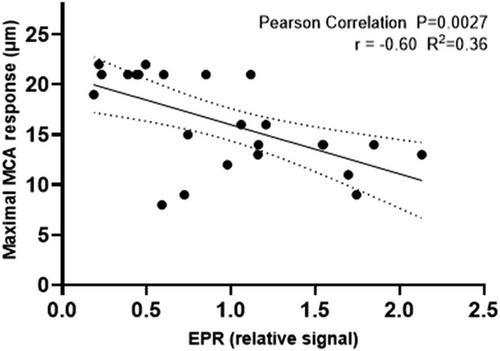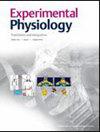An electron paramagnetic resonance time-course study of oxidative stress in the plasma of electronic cigarette exposed rats
Abstract
The long-term consequences of electronic cigarette (Ecig) use in humans are not yet known, but it is known that Ecig aerosols contain many toxic compounds of concern. We have recently shown that Ecig exposure impairs middle cerebral artery (MCA) endothelial function and that it takes 3 days for MCA reactivity to return to normal. However, the sources contributing to impairment of the endothelium were not investigated. We hypothesized that the increased levels of oxidative stress markers in the blood are correlated with impaired MCA reactivity. We used electron paramagnetic resonance (EPR) spectroscopy to examine plasma from 4-month-old male Sprague–Dawley rats that were exposed to either air (n = 5) or 1 h Ecig exposure, after which blood samples were collected at varying times after exposure (i.e., 1–4, 24, 48 and 72 h postexposure, n = 4 or 5 in each time group). The EPR analyses were performed using the redox-sensitive hydroxylamine spin probe 1-hydroxy-3-carboxymethyl-2,2,5,5-tetramethyl-pyrrolidine (CMH) to measure the level of reactive oxidant species in the plasma samples. We found that EPR signal intensity from the CM• radical was significantly increased in plasma at 1-4, 24 and 48 h (P < 0.05, respectively) and returned to control (air) levels by 72 h. When evaluating the EPR results with MCA reactivity, we found a significant negative correlation (Pearson's P = 0.0027). These data indicate that impaired cerebrovascular reactivity resulting from vaping is associated with the oxidative stress level (measured by EPR from plasma) and indicate that a single 1 h vaping session can negatively influence vascular health for up to 3 days after vaping.
Highlights
-
What is the central question of this study?
Does the time course of oxidative stress triggered by electronic cigarette exposure follow the cerebral vascular dysfunction?
-
What is the main finding and its importance?
Electron paramagnetic resonance analysis shows that the oxidative stress induced after a single 1 h exposure to electronic cigarette aerosol takes ≤72 h to return to normal, which mirrors the time course for vascular dysfunction in the middle cerebral artery that we have reported previously.


 求助内容:
求助内容: 应助结果提醒方式:
应助结果提醒方式:


